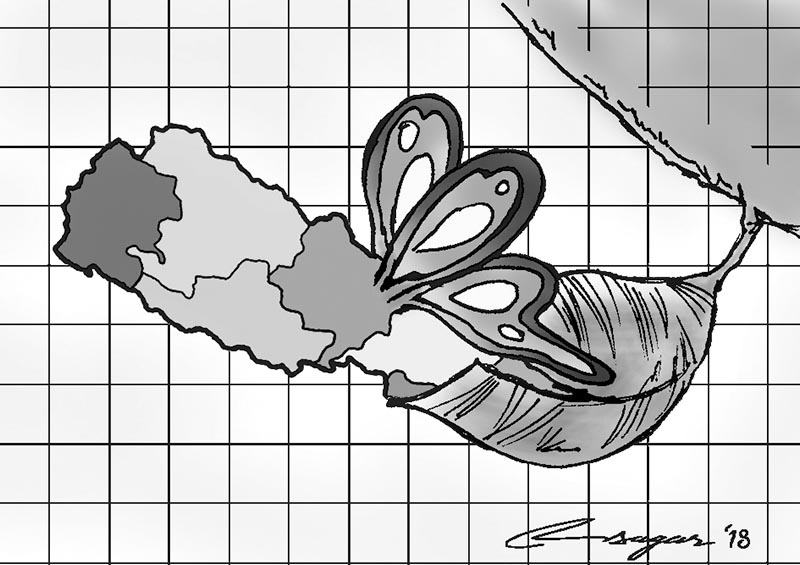Nepal puts LDC graduation plan on hold
Kathmandu, February 27
The government is preparing to request the United Nations Committee for the Development Policy (CDP) to provide some additional time to Nepal to graduate to the league of developing countries.
Following discussions with a wide range of stakeholders, including private sector, academicians, think-tanks, civil society organisations and non-governmental organisations, the National Planning Commission (NPC) has informed Prime Minister KP Sharma Oli about the position of the country on the graduation process.
According to NPC Secretary Bishnu Lamsal, the NPC is preparing to write to CDP that the country is not prepared for graduation and to seek another triennial review in 2021.
The Economic and Social Council (ECOSOC) had said that Nepal has met the criteria in two out of three indicators. Human asset index (HAI), economic vulnerability index (EVI) and per capita income (PCI) are the major indicators in this regard.
Nepal meets the criteria to graduate to the league of developing countries in two major indices — HAI and EVI, according to Lamsal.
However, Nepal’s per capita income is far below the required level.
Nepal aims to graduate to the league of developing nations by 2022. However, the ECOSOC review has said that the country could graduate to the league of developing countries technically as there has been remarkable performance in two major indices.
However, the NPC could not get positive response from the consultation with stakeholders on graduating the country to the league of developing nations.
The private sector is wary about cut to export preferences in the market of developed countries that Nepal is currently enjoying as one of the least developed countries.
“It does not mean that we should remain as LDC despite making marked improvement in the indicators, but we do have to look at the sustainability of the achievements in terms of HAI and EVI,” said Satish Kumar Moor, senior vice president of Confederation of Nepalese Industries.
There are also concerns related to the international assistance that the country has been receiving as a LDC. As per the commitment made by the developed countries, they have to provide 0.75 per cent of their gross national income as official development assistance (ODA). And the LDCs are major beneficiaries of ODA.
ParasKharel, researcher at South Asia Watch on Trade, Economics and Environment, a regional think-tank based in Nepal, said that there is no concentration in any 21 sectors (called ‘industries’ in terminology of Central Bureau of Statistics ) included in GDP calculation, like high concentration of manufacturing (readymade garments) in Bangladesh. Less concentration in each industry is good for Nepal, but the preference utilised by the Nepali exports will not continue after certain years of graduation.
“Trade preferences extended by European Union (EU) called ‘Everything But Arms (EBA)’ allows LDCs to enjoy market preferences till three years after the graduation,” he said.
“In the context of the United States, it has provided trade preferences through endorsement of a separate law from Congress till 2025. Hence, Nepal has presented its logic to the UN that it is not the right time to graduate to the league of developing nations for the country, which has emerged from the long armed conflict and was shattered by the devastating earthquakes of 2015.”
Experts have said that the country has to face negative consequences and cannot sustain the achievements if it hurries to graduate to the league of developing nations.
As per the criteria set by UN, to graduate to the league of developing nations, PCI should be $1,230; HAI should be above 66 and EVI should be below 32, as per the review of 2018.
Nepal’s HAI and EVI stand at 68.7 and 26, respectively, as per NPC. However, the country’s PCI stood at just $865 in fiscal year 2016-17.






